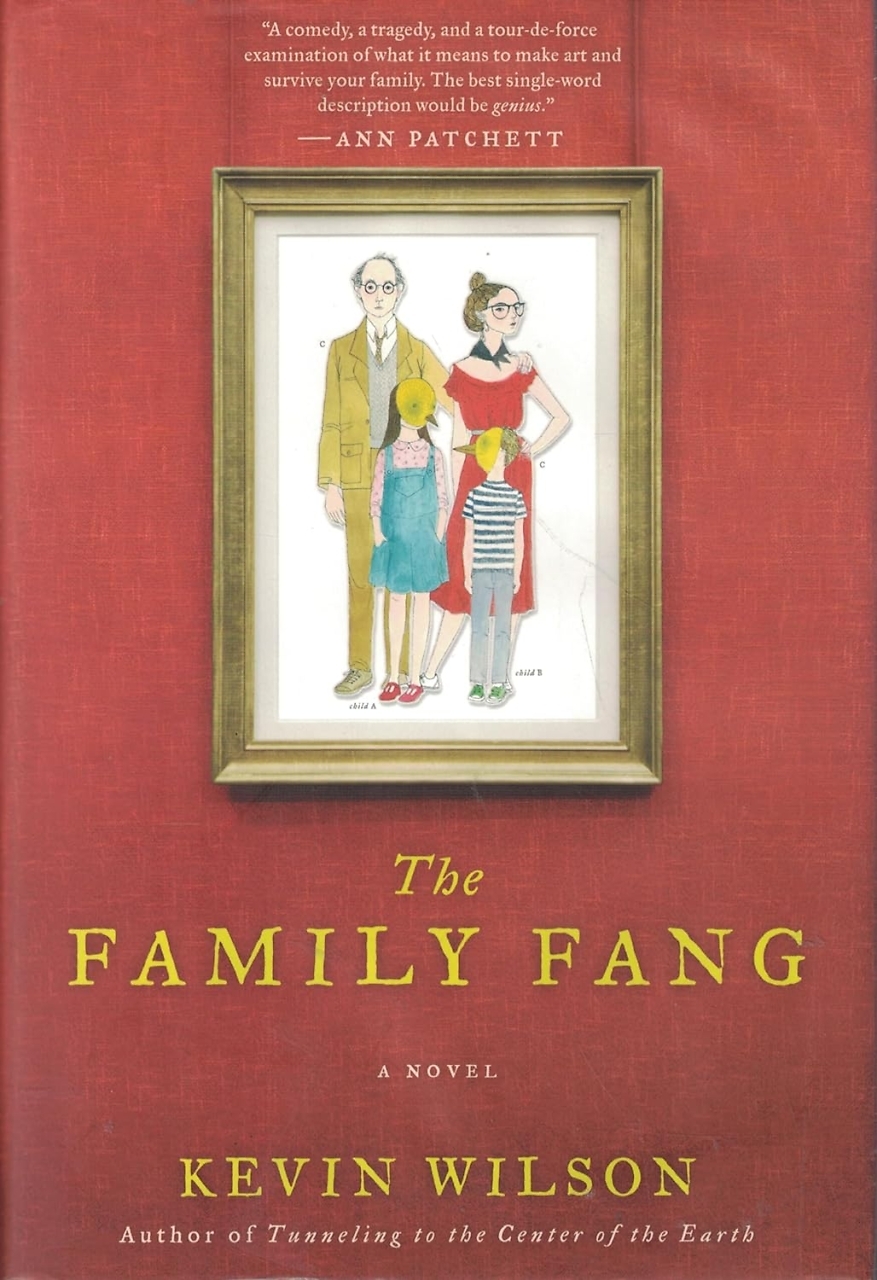Book Excerpt: Ann Patchett's State of Wonder
For Marina Singh, the protagonist of Ann Patchett’s riveting new novel, meeting Annick Swenson means confronting the most haunting episode of her own haunted past
[In her forthcoming novel, State of Wonder, which hits shelves June 7, Nashville author Ann Patchett tells the story of Marina Singh, a researcher for a pharmaceutical company, who had trained to be an obstetrician, until a tragic mistake in the delivery room drove her from medicine. For more than a decade, she has tried to forget the botched C-section and the supervisor, Annick Swenson, who failed to come to her aid when the patient developed complications. But when the pharmaceutical company she works for sends Marina deep into the Amazon to find the elusive Dr. Swenson, who has spent the intervening years working in the jungle to develop a miracle fertility drug, Marina must confront both her long-feared professor and her understanding of her own past. In the following excerpt, Marina is on board a boat piloted by Easter, a deaf native child whom Annick Swenson has raised as a son. They are approaching the riverside village of the Lakashi, the subject of Dr. Swenson’s research: the women of the tribe continue to bear children into old age.]
At dusk the insects came down in a storm, the hard-shelled and soft-sided, the biting and stinging, the chirping and buzzing and droning, every last one unfolded its paper wings and flew with unimaginable velocity into the eyes and mouths and noses of the only three humans they could find. Easter slipped back inside his shirt while Dr. Swenson and Marina wrapped their heads like Bedouins in a storm. When it was fully dark only the misguided insects pelted themselves into the people on board while the rest chose to end their lives against the two bright, hot lights on either side of the boat. The night was filled with the relentless ping of their bodies hitting the glass.
“Dr. Rapp used to say how easy it was for the entomologists,” Dr. Swenson said, turning her back to the onslaught. “They only had to switch on a light and all their specimens came running.”
Marina was less comfortable in the jungle now that she couldn’t see it. She felt the plant life pressing against the edges of the water, straining towards them, every root and tendril reaching. “Not only do the specimens come to you, they then have the decency to kill themselves.”
“This is worse than a hailstorm,” Dr. Swenson said, spitting a small winged beetle onto the deck. “We can do without the lights.” And then she turned off the lights.
In an instant the veil of insects lifted and Marina saw nothing as she had never seen nothing before. It was as if God Himself had turned out the lights, every last one, and left them in the gaping darkness of His abandonment. “Shouldn’t Easter be able to see where he’s going?” she asked. She could barely hear the sound of her own voice over the engine. A boy who could find a single branch in a thousand miles of uninterrupted trees could surely find his way home in the dark. She was the one who wanted the lights back on.
“Open your eyes, Dr. Singh,” Dr. Swenson said. “Look at the stars.”
“There’s something up there,” she said to Dr. Swenson, and in another minute she said, “It’s fire.” What she meant to say was “Turn the boat around.”
Marina put her hands out in front of her and batted at the air until she found the rope at the edge of the boat. She held tightly to it when she leaned to the side. Beyond the spectrum of darkness she saw the bright stars scattered across the table of the night sky and felt as if she had never seen such things as stars before. She did not know enough numbers to count them, and even if she did, the stars could not be separated one from the other, the whole was so much greater than the sum of its parts. She saw the textbook of constellations, the heroes of mythology posing on fields of ink. She could see the milkiness in everything now, the way the sky was spread over with light. And when, finally, she could tear herself away from the theater above them to look forward again she saw yet another light blinking like a mirage on the horizon. It was small and orange and as they came towards it, the light appeared to stretch into a single line, and when she thought she had the line fixed in her vision it broke apart. It scattered and spread, bits of it popping on and off. “There’s something up there,” she said to Dr. Swenson, and in another minute she said, “It’s fire.” What she meant to say was Turn the boat around.
“Indeed,” Dr. Swenson said.
It was a dozen fires, and then the fires tripled, and then Marina could no longer count them. What had been a line had spread into layers, and in those layers the circles of light lifted and fell. Was the fire in the tops of trees? Was it somehow burning in the water? Easter turned the lights of the boat back on and instantly the fire began to leap. A ululation of voices exploded the night, the ringing sound of countless tongues hitting the roofs of countless mouths. It filled the entire jungle and poured up the river in a wave.
There were people on the banks of the river.
They were going to meet the tribe. That had always been the point of the expedition, so why hadn’t Marina thought of it before now? What had made the jungle so uncomfortable all this time was its absence of people. All the jungle had offered thus far were plants and insects, clinging vines and unseen animals, and that was bad enough, but now Marina realized that people were truly the worst-case scenario. It was like being alone on a dark city street and suddenly turning a corner to find a group of young men staring menacingly from a doorway. “Lakashi?” Marina asked, hoping they were at the very least facing a known factor.
“Yes,” Dr. Swenson said.
She was on an unnamed river in the middle of nowhere in the middle of the night feeling very much the same way she always felt with Dr. Swenson, like Oliver Twist holding up his empty bowl.
Marina waited for a moment, hoping for more than a one word affirmation. She was on an unnamed river in the middle of nowhere in the middle of the night feeling very much the same way she always felt with Dr. Swenson, like Oliver Twist holding up his empty bowl. Would it have been too much to ask for the simple acknowledgment that these were no doubt unfamiliar circumstances? Dr. Swenson could have even extended herself enough to tell the story of the first time she had encountered the Lakashi, Lucky for me it was daylight then, or, I certainly was grateful that Dr. Rapp knew what to do, but that of course would require Dr. Swenson to be someone else entirely. The boat crept its way towards the waving, spinning flames until they were close enough that Marina could just make out the shape of heads behind each of the fires, every man and woman waving a burning stick, children holding slim burning branches, jumping and calling. She could see the trails of sparks as they splintered off and flew in every direction, extinguishing themselves before they touched the ground. In their magnitude those sparks were reminiscent of stars. The sound was also more nuanced the closer they came to it: too forceful for any flock of birds, too rhythmic for any animal. Marina remembered a funeral her father had taken her to as a child, thousands of lights in paper cups floating down the Ganges, the people crowded onto the banks, walking into the water, cutting through the night air filled with incense and smoke. She could smell the rot of the water beneath the blanket of flowers. At the time the spectacle had frightened her so badly she buried her face in her father’s shirt and kept it there for the rest of the night, but now she was grateful for the little she had seen. It didn’t explain what was spread out before her but it reminded her of all the things she didn’t understand. “What do you think has happened?” Marina asked. Some of the people on the shore were dropping their fire now. They were walking into the water and swimming towards the boat. It was quite clear to Marina how people could get on the boat but she wasn’t able to see how she could get off.
“What do you mean?” Dr. Swenson said. What do you mean, Dr. Singh, when you say stage-two cervical cancer?
Marina, beyond words, extended her open arms to the shore ahead.
Dr. Swenson looked down at the men who swam towards them. They kept their long throats stretched up like turtles so that they could avoid getting water in their open mouths as they called and cried. Then she looked back at her guest as if she could not believe she was yet again being bothered by the timid rabbits and their foolish questions. “We’ve come back,” she said.
Marina turned away from the ebullient welcome, the burning and hopping and splashing, the never-ending sound of la-la-la-la-la, and turned back to Dr. Swenson, who was nodding her head towards the masses with a sort of weary acceptance. “You were only gone for a night.”
All the jungle had offered thus far were plants and insects, clinging vines and unseen animals, and that was bad enough, but now Marina realized that people were truly the worst-case scenario.
“They never believe it. It doesn’t matter how many times I tell them. Their sense of time lacks—.” But she didn’t finish her sentence. The boat had sharply listed to the right as the men began to hang on to the pontoon on one side and then push themselves up. The case of grapefruit juice slid abruptly, hitting Marina in the ankles and very nearly throwing her into the ones who were just now pulling themselves out of the water. She caught a pole and righted herself. This was the reason Marina’s father always insisted on renting a pontoon boat in those early summers: not only was it easier to navigate and impossible to sink, it would have been very easy to reboard if one of them had fallen over. But no one ever did fall over. The theory was not put to the test. Dripping, the men hoisted themselves on to the deck and stood. They were considerably smaller than Marina, though taller than Dr. Swenson, wearing nylon running shorts and sopping T-shirts that advertised American products—Nike and Mr. Bubble. One of them wore a Peterbilt hat. They slapped their open hands against Easter, his arms and shoulders and back, as if he were a fire that they were putting out. Easter, clearly pleased, slapped them away. There were seven men on the boat, and then there were nine, all of them crying out with piercing intent. The black water was churning with swim¬mers and from time to time Easter would swing down the light and shine it into the water which served to consolidate the men like tarpon. They looked up and waved. No one could fault Easter for driving over them, they were swarming, but when the slow moving pontoon pressed against a shoulder or head the man simply sank beneath it and then popped up again later, assuming it was the same man popping up there. How many boats throughout history had been met by such enthusiastic locals? On the deck a man was looking up at Marina now and he touched her cheek with a wet hand without making eye contact. Two men behind her petted her hair. A fourth man ran his fingers down her forearm in a way that was almost too gentle to be endured. It was as if she were being greeted in a school for the blind. When a fifth reached up and cupped her breast, Dr. Swenson clapped her hands together sharply.
“Enough of that,” she said, and the men with their hands on Marina jumped back onto the toes of ones standing behind them who were waiting their turn, which caused all of them to still their tongues in their mouths and look at Dr. Swenson with expectation. In that moment Marina knew two things for certain: the Lakashi did not speak English, did not know the word enough, and that despite this minor hindrance they would do whatever Dr. Swenson told them. The snap in Dr. Swenson’s voice had driven Marina’s pulse higher than the men with their wet fingers. They, after all, seemed more curious than menacing. In this hierarchy, Dr. Swenson was the uncontested kingpin and Marina felt herself to be closer to the natives than to their ruler. “Go on,” Dr. Swenson said, and pointed to the side of the boat, where one by one they walked obediently off the edge, often landing on some unfortunate in the water. “They are an extremely tactile people,” Dr. Swenson said when the last one had disappeared with a splash. “They don’t mean anything by it. If they can’t touch it, it doesn’t exist.”
“They don’t touch you,” Marina said, running her sleeve over her face.
Dr. Swenson nodded. “At this point they know I exist. I’ve been able to do away with the rest of it.”
“I’m alright,” she said, and then she looked at Marina. She seemed to struggle for her breath. “Sometimes this is more difficult than I had imagined.”
There was a narrow dock sticking out of the bank, a single, beckoning finger, and Easter brought up the boat snug alongside it, at which point the men handed their burning sticks to the women and boarded the boat in an orderly fashion, picking up boxes and baggage and carrying them off into the night. Most of them gave Marina a tap on the shoulder or stopped to touch the side of her head, but there was work to be done and no one lingered. Now it was the women who were singing out, and as Marina left the boat with Easter and Dr. Swenson they raised their torches overhead to cast a wider band of light. They wore homemade shift dresses in dull colors and kept their hair in long braids down their backs. There were children tied across their chests in slings, children holding on to their ankles, children balanced on hips, their dark round eyes reflecting the fire all around them. Dr. Swenson trudged up the dirt path into the jungle, nodding from time to time at the women who trilled their vowels in rapture. The children on the ground reached out and touched Marina’s pants, women ran their fingers around her ears and tapped at her collarbone. Occasionally a child, a very small one, would extend a hand to Dr. Swenson and the mother would snatch it back.
“They didn’t know you were coming tonight,” Marina said, hurrying a bit to be closer to Dr. Swenson. She even went so far as to put a hand on her arm. “Sometimes you stay longer in Manaus, two nights, three nights.”
“Sometimes I stay a week,” Dr. Swenson said, looking forward. “I don’t enjoy it but it happens.”
A pregnant woman reached into the path in front of them and pulled back a low-hanging branch from a tree.
“But if they have no sense of time, and you have no means of con¬tacting them, how do they know when you’re coming back?”
“They don’t.”
“Then how did they know to stage all of this tonight?”
Dr. Swenson stopped and turned to Marina. The terrible darkness was broken apart by so many separate fires that the shadows, like the voices, came at them from every direction. From time to time a chunk of burning stick would fall into a pile of leaves. It was hard to under¬stand how the entire forest had not been reduced to a pile of smoldering ash. “I suppose they do it every night when I’m gone. I don’t actually know. You can ask Dr. Nkomo in the morning. I’m going to say good night, Dr. Singh. Easter will get you settled from here. I’m tired now.” As she spoke the words, Dr. Swenson began to weave a bit from side to side and Marina took a firmer hold on her arm. Dr. Swenson closed her eyes. “I’m alright,” she said, and then she looked at Marina. She seemed to struggle for her breath. “Sometimes this is more difficult than I had imagined.” Dr. Swenson held out her hand and a woman standing beside the path, a woman with one sleeping child tied across her chest and two more children, twins perhaps, holding either calf, took that hand and led her forward into the night. As Dr. Swenson walked away, all the light and sound went with her, the crowd formed itself around the fire she was holding. It should have been Marina who asked for a torch because before very long she was standing alone in the dark.
[To read Chapter 16’s interview with Ann Patchett, click here.]
Copyright (c) 2011 by Ann Patchett. Used with permission. All rights reserved.


